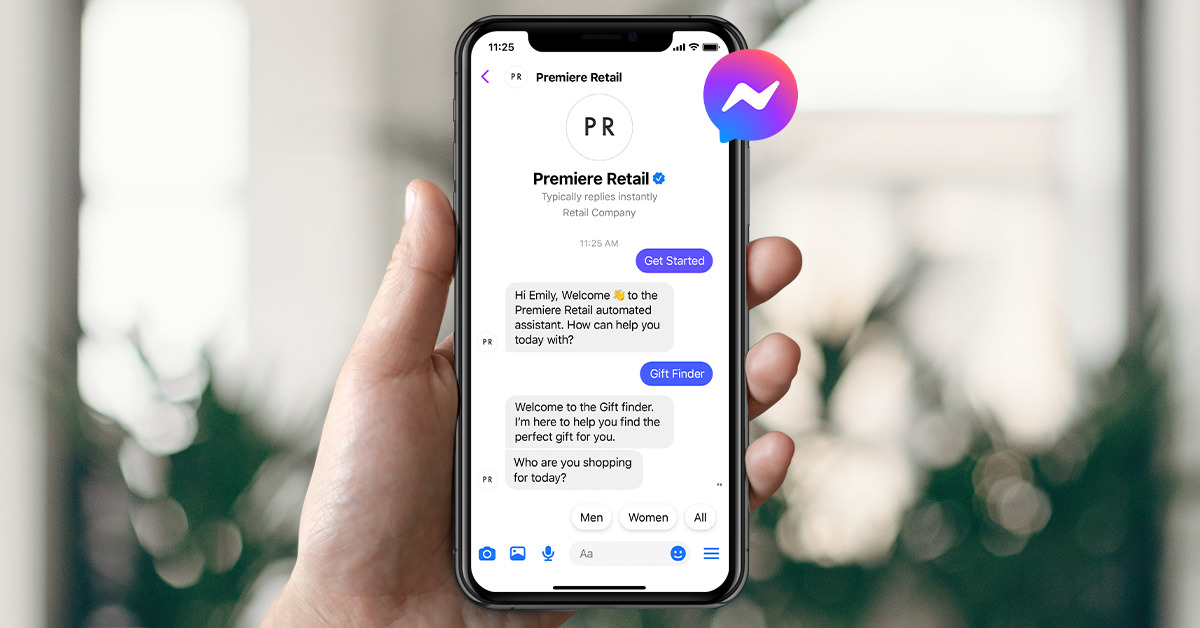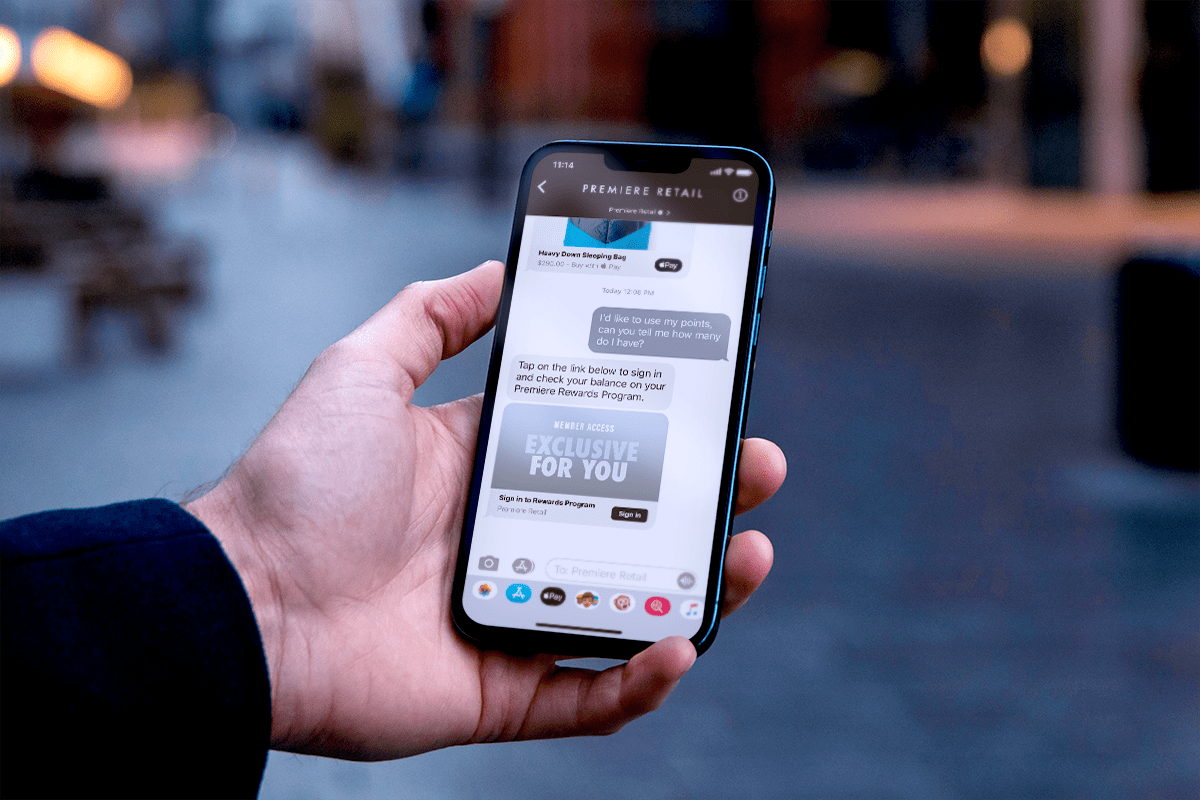Instant messaging has become a ubiquitous part of daily life for the vast majority of us. We send over 40 million messages every minute, and nearly three billion people use messaging apps like Facebook Messenger and WhatsApp.
Naturally, enterprises with contact centers have responded by giving instant messaging for business a central role in their customer-communication strategy.
Today, we will flesh this dynamic out in more detail. This post highlights some of the most significant impacts of business instant messaging’s rapid growth, touching upon the most popular messaging options and discussing some ways it’s changing day-to-day work.
Let’s get going!
Why is Business Instant Messaging Important?
We’ve already noted that people send lots of messages, which is reason enough to pay attention to them. But, in this section, let’s briefly walk through some more granular reasons why customers want to contact your brand via instant messaging for business.
First, instant messaging is rapidly becoming the preferred method for handling most types of communication. If your customers are anything like the rest of us, they’re probably busy enough to enjoy the convenience of resolving issues asynchronously. Nor is this only the case for younger generations. The popular stereotype is that people with gray hair simply don’t like texting, but surveys have found that nine out of ten adults over 50 send text messages with their phones–which means they’ll likely be comfortable sending business instant messages, too.
Instant messaging also helps you build a better experience, which is always a competitive advantage. Instant messaging for business tends to be perceived as less formal than an email or (god forbid) actually talking to a person on the phone, and it also allows you to proactively reach out with updates, to answer questions, etc. Most of these services also support rich messaging, so customers have a much better experience.
Finally, with instant messaging, it becomes far easier to integrate rich messages and generative AI, but we’ll wait to cover that in much more detail later.
What Instant Messaging Platforms are Available?
One last thing we’ll do before discussing how instant messaging is modifying the relationship between businesses and their customers is go through some of the instant messaging platforms businesses use. Here are some of the main contenders:
- WhatsApp for Business is a messaging, voice, and video-calling app operated by Meta that enjoys an audience of more than 2 billion global users. Since so many people are already texting on WhatsApp, it’s become a popular channel for companies interested in using it for business instant messages.
- Facebook Messenger is another offering from Meta. Customer-obsessed businesses like yours should pay attention to it for many reasons, but, as with WhatsApp, its huge audience is near the top. Even better, businesses that deploy quality automation solutions on Facebook Messenger can answer 80% of inbound customer inquiries and achieve CSATs as high as 95%.
- Instagram Messenger is worth exploring because it’s a safe bet that a decent chunk of your audience is already interacting with businesses on the popular Instagram platform. A further point in its favor is that it offers a convenient API that will allow you to set up automation to increase your business’s efficiency.
- Apple Messages for Business dramatically increases your customers’ ability to reach you because it offers a “message” icon in Maps, Siri, Safari, Spotlight, or your company’s website, in addition to offering other touchpoints like QR codes. And, as before, the sheer popularity of Apple and its product ecosystem is another reason forward-looking businesses can’t afford to sleep on its instant messaging capabilities.
- WeChat is a platform that is extraordinarily popular in China and enjoys more than a billion users. As with the other platforms, there is a WeChat Business offering that allows you to communicate with customers, market your services, and take payments, but to set up a WeChat Business account you have to verify your business license. If you have a large customer base in China, this might be the best option for you.
Of course, there are many other instant messaging for business products we haven’t discussed here, but this should give you an idea of the variety of options available and what’s possible when you invest in them.
The 4 Benefits of Instant Messaging for Business
Now, let’s get into the meat of how instant messaging is changing the business landscape!
1. Instant Messaging is Convenient for Customers
The most obvious place to start is with the major convenience instant messaging for business offers clients.
Customers today seek flexibility in how they engage in personal and professional communication. Businesses need to provide various communication options, including instant messaging, as this offers the asynchronous communication that more and more customers prefer.
Take the example of a customer who initiates a return process during their workday, but can only complete steps, like taking a photo of a damaged item once they’re home. Instant messaging allows for this in a way that phone calls or in-person visits don’t, enabling ongoing conversations that customers can pause and resume as their schedule permits.
2. Instant Messaging Helps Customer Service Teams
So, we’ve established that instant messaging is something customers want. Now let’s discuss why it’s a boon for customer service teams as well.
For one thing, there’s the increase in efficiency, as instant messaging for business enables contact center agents to manage multiple customer inquiries simultaneously. This becomes even more dramatic when automation is used, about which more shortly.
Additionally, instant messaging-based conversations between consumers and businesses simplifies the process of following up with shoppers and keeping accurate data on past communications. When sales or support agents need to have follow-up conversations, they can do so in light of this information, thereby tailoring and personalizing subsequent customer interactions.
When business instant messaging is used to its full potential, it can positively impact your customers’ perception of your brand, which can help close a deal, renew a service, or give potential buyers the push they need to make a purchase.
Put another way: it’s a win for everyone.
3. You Can Leverage The Power of Instant Rich Messaging
Another advantage of this instant-messaging approach is that it enables your contact center to make robust use of rich messaging, which rose to prominence in the early 2000s and is now ubiquitous.
Rich messaging was a substantial advancement over the traditional SMS. Besides allowing you to send much more complex information–such as emojis, high-quality audio messages and video calls, group chats, and GIFs–it also facilitates encryption, superior analytics, and integration with other products.
It’s important not to downplay these advantages. You might initially be reluctant to use emojis in conversations with customers, as this can seem vaguely unprofessional. But the truth is we leave in a less formal age, and speaking the “native language of the internet” by using “lol” and the occasional “ ” will help foster a connection.
4. Instant Messaging and Generative AI
To finish up, we turn to the silicon elephant in the room, generative AI. If you’ve been reading us for a while, you know we’ve had a lot to say about the remarkable power of large language models and how they’re already changing the nature of contact center work.
Well, since these models are largely text-based, instant messaging for business provides an obvious place to use them. When you pair with a high-quality automation platform, you can deploy generative AI to personalize your messages, translate between languages, and even fully answer a wide variety of basic queries–with minimal fuss.
Don’t Sleep on Instant Messaging for Business
As we’ve demonstrated, business instant messaging is a powerful way to reach your customers where they are, fit seamlessly into their lives, and offer a top-notch experience – all while lowering the burden placed on your agents.
As a next step, you might want to learn more about how Quiq enables support through traditional SMS and rich messaging. This should give you everything you need to design a customer experience strategy around instant messaging!



